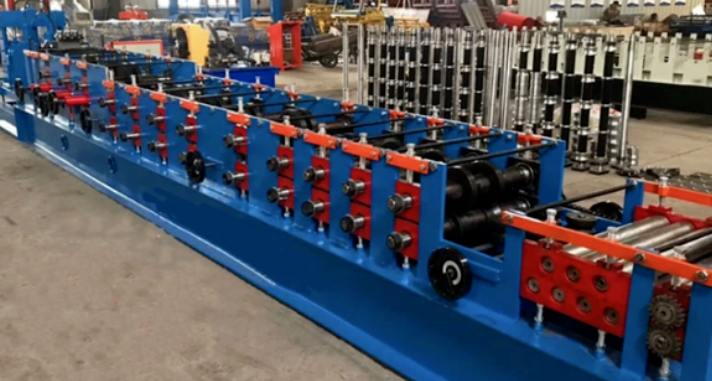The importance of lubrication in the roll forming process cannot be overstated. Lubrication plays a crucial role in maintaining the efficiency, longevity, and performance of roll forming machines. Here's an outline of its key functions:
1. Reducing Tool Wear
- Minimizing Friction: The roll forming process involves continuous metal-to-tool contact, which generates significant friction. Proper lubrication reduces friction, minimizing the wear and tear on the roll forming dies, shafts, and other machine components. This prolongs the lifespan of the tools and reduces maintenance downtime.
- Cost Efficiency: By reducing the need for frequent die replacement, lubrication helps lower operational costs, ensuring the roll forming machine operates more efficiently over extended periods.
2. Enhancing Product Quality
- Smooth Metal Flow: Lubrication ensures that the metal flows smoothly through the forming rolls, preventing defects such as scratches, warping, or uneven edges on the finished product. This is particularly important in industries where aesthetic quality is paramount, such as in roofing panels or automotive parts.
- Consistent Forming Process: The uniform application of lubrication ensures a consistent roll forming process, resulting in high-quality, defect-free components.
3. Improving Machine Performance
- Temperature Control: During high-speed roll forming operations, significant heat can build up due to friction. Lubrication acts as a cooling agent, dissipating this heat and preventing the machine from overheating. This allows for continuous operation without risking damage to the machine components.
- Smoother Operations: With proper lubrication, the entire forming process runs more smoothly, reducing machine vibrations and noise. This enhances the overall performance and stability of the roll forming machine.
4. Choosing the Right Lubrication System
- Type of Lubricant: It's essential to select a lubricant compatible with the material being processed. Commonly used lubricants in roll forming include oil-based, synthetic, or water-based lubricants. The choice of lubricant depends on factors such as metal type, forming speed, and whether the product requires post-process treatments like painting or welding.
- Application Methods: Lubrication can be applied manually, through roller applicators, or by using automatic spray systems. The method used depends on the size of the production line and the complexity of the formed product.
In conclusion, lubrication is an essential component of efficient roll forming operations. It reduces tool wear, improves product quality, and ensures smooth machine performance. Selecting the right type of lubricant and application method can significantly enhance the overall efficiency and cost-effectiveness of the process.




